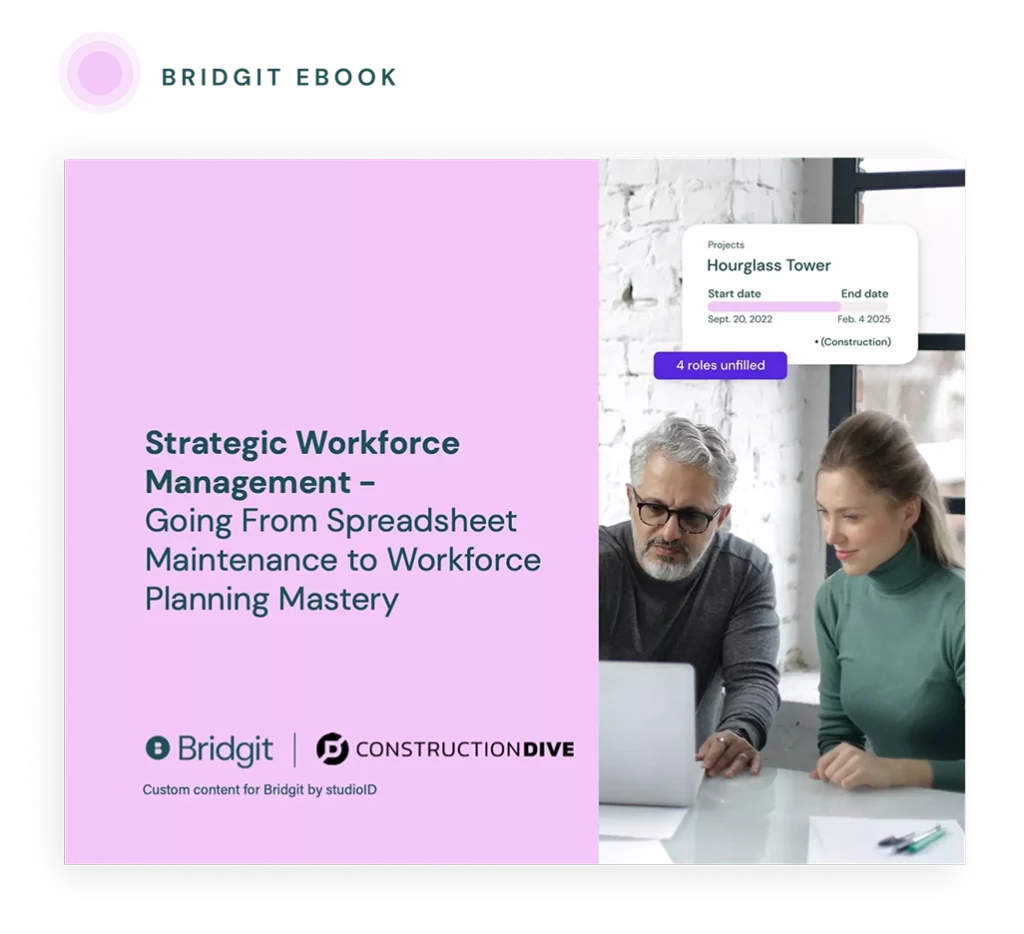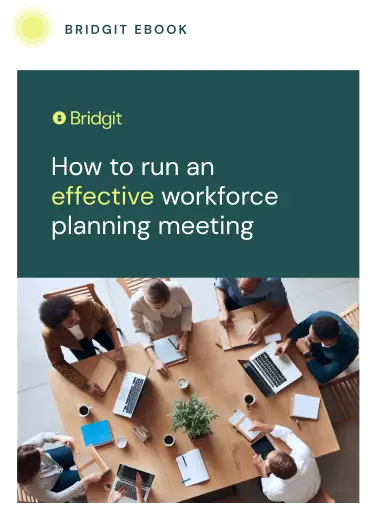Today’s culture celebrates being busy. Hustle culture can do more than spur you to take on a side job or create a business in your spare time—it can make rest a shameful thing. But reducing stress isn’t a luxury—it’s necessary for your long-term health and well-being.
Table of Contents
It’s no secret that construction stress is a widespread issue. Feast-or-famine schedules require long hours during busy periods, with stress over the bottom line when the work is slow. Ever-tightening timelines and even tighter margins mean every day has to be maximized. And even when the schedule’s all lined up, unexpected issues are bound to arise, so putting out fires is a daily activity.
That doesn’t mean your health has to suffer as a construction project manager. There are specific things you can do to help lighten each day’s load.
We checked in with industry pros to find out what they do to manage their stress on the job, covering their best advice for dealing with stress in the construction industry.
Is stress in the construction industry a common issue?
Research shows that 80% of workers across all sectors experience stress while working on the job, but this is especially true for the construction industry. Whether you’re working on-site or in the office, the fast-paced nature of construction and the amount of mentally and physically demanding work required can be draining. Burnout is common among both construction employees and employers.
So what are the sources of stress in construction?
- Physical labor – For those on the field, physically strenuous and repetitive tasks (sometimes in the heat and cold) can be taxing, putting stress on the body and mind
- Long hours – Some jobs require workers to be present before the sun rises, working late into the evening. Overtime and travel time can cause additional pressure and exhaustion
- Dangerous work conditions – Having to use heavy machinery and work at heights can not only put workers at risk for injuries and falls but can cause a significant amount of anxiety
- Constant delays and unforeseen circumstances – Re-adjusting to expected changes in construction projects, which are all too common, can result in stress both on the field and in the office

Looking to be more strategic with your people?
We partnered with Construction Dive to outline the steps any contractor can take to be more strategic with their workforce management.
Tips for overcoming stress in construction
Here are some tips for overcoming stress when you work in the construction industry.
Understand the sources of stress
Identifying the source of stress can be the first step in tackling it. It helps to also foster a sense of awareness for when you’re starting to feel it. Stress can manifest in many ways, whether it’s panic attacks, headaches, or a constant feeling of anxiety. Once you’ve identified the source, you can begin making an action plan for how you’ll address it, asking yourself whether it can be feasibly discussed with a supervisor or co-worker.
Pre-plan ahead to keep things in perspective
It can be hard to justify spending time doing extra research, checking one more document, and working on preconstruction when milestones and project deadlines are looming. But the pre-planning stages of a construction project can save reams of time down the line, thus paying for themselves and avoiding some stressful situations at the same time. Pre-planning is a practical and preventative way to deal with construction project manager stress.
First, doing thorough research and planning can help win bids, nullifying some of the impacts of that feast-or-famine cycle. By providing the most comprehensive preplan your company can come up with regarding resources and other facets, you can provide owners with the closest approximation of actual cost, feeling confident doing it.
One of the most stressful parts of the job is always knowing there will be unforeseen hiccups and not knowing exactly what they are. That fear of the unknown can be mitigated through thorough investigation and planning beforehand, by identifying potential pitfalls so a plan can be made to avoid them before they cause trouble. This can reduce the risk of construction stress.
Going through the trouble of getting a phase one environmental assessment, for instance, will help understand the nature of the site better before shovels hit the ground. For example, if there are potential problems like soil or groundwater contamination, it can be addressed beforehand.
Workforce optimization can also go a long way in combating unforeseen circumstances.
Communication is big, and communication is key
One of the key traits of successful construction project managers is the ability to communicate openly and with diplomacy to owners, trade workers, and everyone in between.
Communicating with trades teams early and often, and collaborating with them on the scheduling aspects of a project, means the project benefits from their expertise, too. Ken Toews, senior vice president of development at Strategic Group, says that when the unexpected crops up, he leans on contractors to help come up with cost-effective solutions, preventing stress in construction. “I call on the people I know can help,” he says.
Project managers also need clear and open lines of communication with owners to understand their goals, to best figure out how to achieve them, and to help owners understand that construction projects rarely proceed in a linear fashion.
“It’s important to manage expectations up front,” Hedmond says on dealing with stress in the construction industry. “[By] letting them know, ‘this isn’t going to be perfect, things will go wrong, but we just have to come up with a new plan,’” he says.
Once that new plan is in place, you’ll have to make sure everyone is aware of it. Hedmond says it’s a lot less stressful if owners know that you’re dealing with the situation as it unfolds and you’re keeping them informed. “It helps when they know you’re not just blowing them off,” he says, and it will help you with your stress reduction too.
Exercise regularly
While exercising after doing such physically strenuous work may seem less than appealing, especially after working so many hours of overtime, it’s important to keep yourself fit. Not only does this ensure that you’ll be physically prepared to handle the tasks that you’re given, but daily exercise has been scientifically proven to also release endorphins and reduce the amount of stress in your brain, making it a viable coping mechanism for construction stress.
Keep a journal
It may seem like a simple suggestion, but some find journaling helpful, as putting thoughts to paper can make sorting through them easier. It can also streamline the process of identifying the root cause of stress and working out a solution. Being honest with your thoughts when it would otherwise be difficult to talk about them with someone else can be a useful release.
Ask for help
When you know what’s causing you stress, consider discussing the issue at length with co-workers or talking to supervisors to work out a solution. With stress in construction being so commonplace, it’s unlikely that those around you aren’t experiencing the same thing. Whether it’s searching for peer support or looking for help finishing your tasks, asking for assistance can sometimes feel embarrassing, but it doesn’t have to.
Know when to turn off
Don’t get married to your job. A management position means that, yes, when you’re not on-site, you could get phone calls and emails asking you to take care of some problem. It’s important to know when to shut off the phone and tune out.
Construction stress is not problematic in itself. The ongoing nature of stress is what harms when there are no relaxed rest periods when your body is free from the stress response.
Is that possible for a construction project manager? Hedmond says yes – in many cases, he’s able to keep the position from 7-5, with exceptions from municipal zoning meetings or when an inspector needs to do the work, especially early in the morning or late in the day.
Good pre-planning and boundary-setting should allow you the time you need to unwind.
Is all stress bad?
All the evidence on the negative effects of stress is focused on chronic stress in construction. An ongoing, day-in, day-out stress response can lead to immune suppression and has ties to the onset of many other illnesses.
Acute stress, on the other hand, is a burst of physical reaction to a sudden threat, and it might not be so bad. In the short term, it can actually boost immune function and sharpen thinking for better performance.
Toews says this type of stress is a part of life, and something that can be expected when you challenge yourself. “A little bit of stress is good. It brings out the best in people,” he says.
For more on working as a construction project manager, check out our ‘day in the life of a construction project manager’ series.
Reduce stress, and manage your workforce better with Bridgit Bench
Stress is a normal part of life, but too much of it can be a bad thing. When you’re stressing over managing your project’s workforce, look no further than Bridgit Bench, a workforce management solution designed to make your job easier. Request a demo with Bridgit today.
Think your workforce planning meetings could be more productive?
Download our ebook to learn how to run efficient, effective workforce planning meetings with your team.


